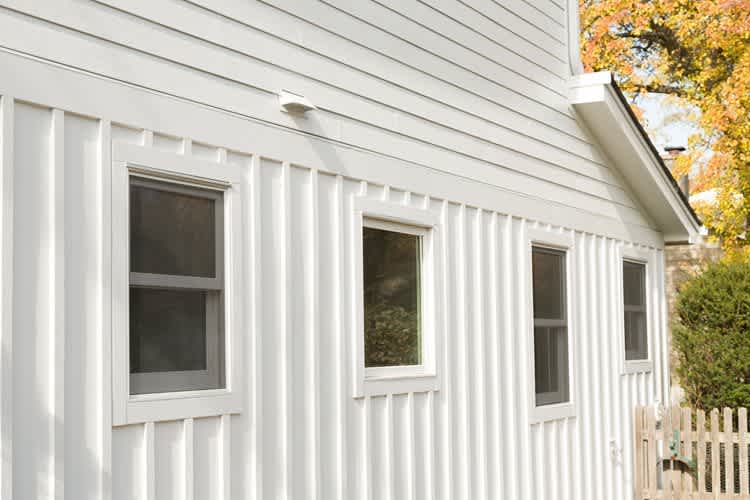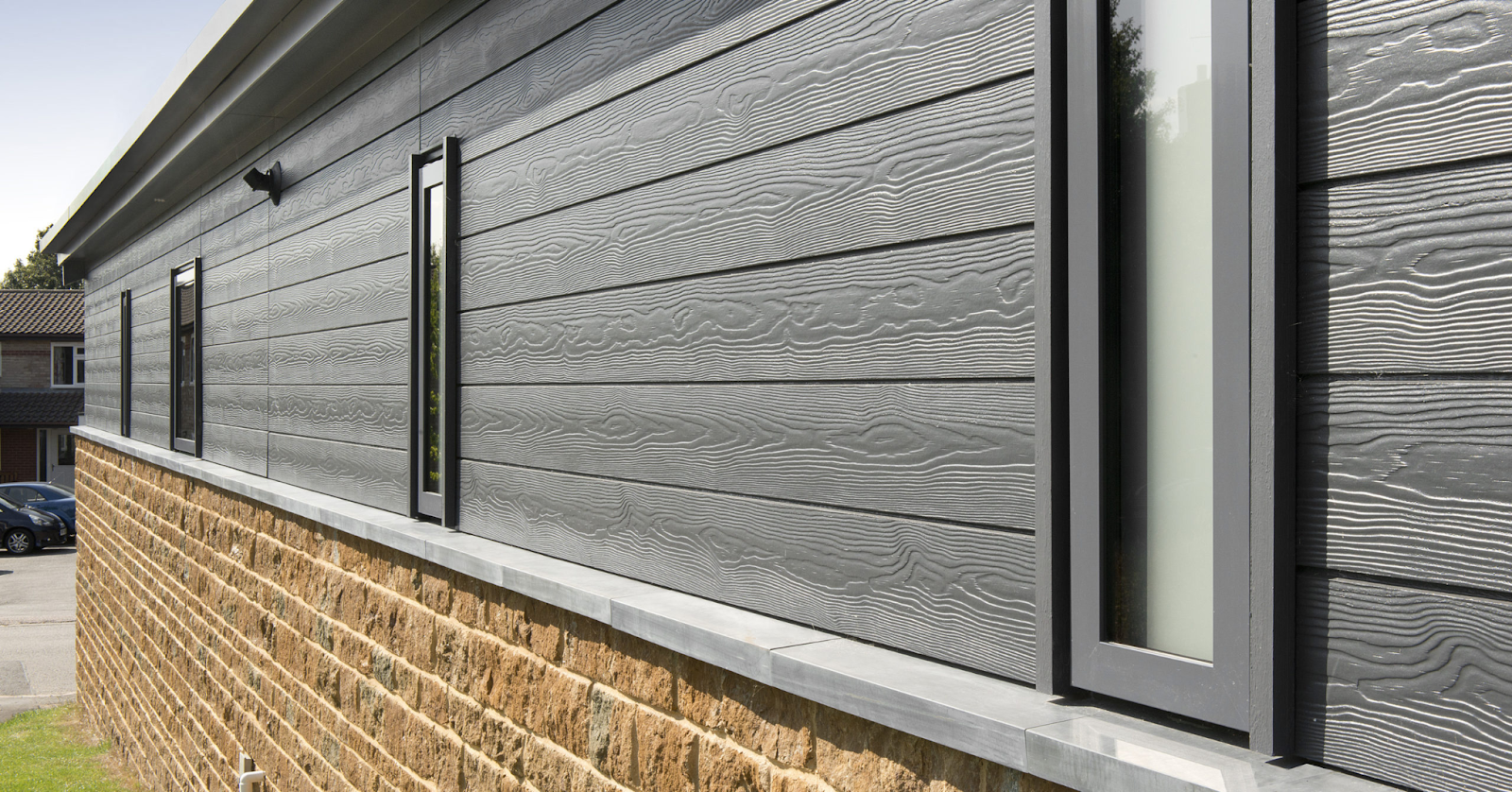
OUR SERVICES
Trust an Experienced
Local Company to Work on Your Siding!


Wood Siding



Vinyl Siding



When it comes to improving your home's exterior, siding matters. It protects your home, adds beauty, and can even cut energy costs. In Seattle, with our wet and often cool climate, choosing the right siding is an important decision. Vinyl siding installation Seattle remains one of the most popular choices by far—and for good reasons. Yet many homeowners also consider fiber cement siding Seattle for its long-lasting strength.
This guide covers who should choose vinyl siding, what it offers, when and where it’s best used, why it remains top-rated, and how to choose or maintain your siding. We’ll also answer all your common questions in an easy way.

Vinyl siding is widely known for being a budget-friendly exterior option. Many Seattle homeowners appreciate that vinyl siding offers great value for money because:
- The material costs less than fiber cement or wood siding.
- Installation is quicker and simpler, meaning fewer labor hours and lower bills.
- Homeowners save money on future maintenance because vinyl does not need painting or sealing.
For average homes in Seattle, vinyl siding costs between $15,000 and $17,000, depending on size and style. This is often 1/4 to 1/3 less expensive upfront compared to fiber cement siding, which can start around $20,000 and often rises with complex installations.
Seattle’s weather can be tough on exteriors: rain, humidity, and even occasional windstorms take a toll. Vinyl siding is designed to:
- Resist moisture damage: It does not absorb water, so it won’t rot or warp.
- Resist insect damage: Termites and wood-boring bugs can’t eat it, unlike wood siding.
- Avoid fading: Modern vinyl has UV-resistant coatings to maintain color vibrancy.
Stand strong against scratches, dents, and impacts that might damage other materials.
Maintenance is easy—usually a rinse down with a garden hose and mild soap is enough to keep it looking fresh for years. No sanding, repainting, or special treatments are needed.
Vinyl siding today isn’t just plain sheets of plastic. Thanks to manufacturing advances, vinyl siding can mimic the look of:
- Smooth lap siding,
- Wood grain textures,
- Stone or brick facades (with specialty panels),
And more.
Whether you want a classic look or a modern aesthetic, vinyl siding comes in hundreds of colors and profiles. This makes it simple to match your home’s architectural style and personal taste without paying for expensive custom work.
Insulated vinyl siding has gained popularity because of its energy-saving qualities:
- It adds a foam insulation layer behind the vinyl, reducing heat loss in winter and heat gain in summer.
- This can reduce your home’s heating bills during Seattle’s chilly months.
- With increasing energy costs, many homeowners see vinyl siding as an investment that pays off over time.
Many vinyl siding manufacturers commit to greener production today by:
- Using recycled materials within the panels.
- Offering recyclable end-of-life products.
- Minimizing waste through efficient factory processes.
This addresses concerns homeowners might have about vinyl’s environmental footprint.
Vinyl siding installation is ideal if you:
- Want an affordable but attractive exterior upgrade.
- Prefer low maintenance with minimal upkeep effort.
- Live in a wet climate like Seattle and want something weather-resistant.
- Desire a quick installation with less disruption to your family.
- Want variety in styles and colors but have a limited budget.
- Are looking to increase home value without excessive cost.
On the other hand, if you want siding with extreme durability or fire resistance or plan to own your home long-term without upgrades, fiber cement might be worth considering. We’ll cover that next.

Fiber cement siding is made from a mixture of cement, sand, and cellulose fibers. It is popular in Seattle for its:
- Fire resistance: Does not easily burn, unlike vinyl or wood.
- Longevity: Often lasts 50+ years with proper maintenance.
- Strength: Resists cracks better and holds paint well.
- Resistance to moisture: Designed to handle rain without rot or mold.
- Costs more—typically $20,000 to $24,000 or higher for average homes.
- Requires more complex installation by specialists.
- Needs periodic repainting every 10-15 years to maintain look.
- Is heavier and fragile during handling compared to vinyl.
Seattle homeowners choose fiber cement when they want ultra-long life and don’t mind extra initial investment or maintenance over the decades.
- New construction or re-siding projects benefit from vinyl for ease and cost-effectiveness.
- Homes with older or worn siding can quickly upgrade curb appeal without massive remodeling using vinyl.
- Fiber cement is chosen for historic houses or fire-prone neighborhoods.
- Both materials handle Seattle’s damp climate well, but vinyl’s water resistance and lower maintenance make it ideal for many homeowners.
- When insulating your home, vinyl with foam backing adds value to thermal performance.
- Assess Your Budget: Vinyl is more affordable upfront. Fiber cement costs more but lasts longer.
- Consider Climate and Weather: Both good choices, but vinyl’s water resistance is top-rated for Seattle rains.
- Look at Maintenance Requirements: Vinyl is nearly maintenance-free; fiber cement needs repainting every decade or so.
- Think Style and Color: Vinyl offers more pre-finished color options; fiber cement can be repainted as you wish.
- Installation Timeframe: Vinyl is faster to install, ideal if you want minimal disruption.
- Local Contractor Recommendations: Experienced contractors can advise on the best fit for your specific house and neighborhood.
- Choose a Licensed Contractor: Ensure your installer knows Seattle’s climate and local building codes.
- Prep the Surface: Inspect and repair any rotten wood or structural damage before siding goes up.
- Add Weather Barrier: Install a house wrap or building paper for extra moisture protection behind the siding.
- Use Proper Fastening: Follow manufacturer instructions on fastener types and spacing to avoid warping or damage.
- Consider Insulated Vinyl: For better energy performance, insulated panels are worth the investment.
- Ask for a Warranty: Both materials and workmanship should be covered.
- Rinse annually with hose and mild detergent.
- Remove mildew or mold with special cleaners if spotted.
- Trim back bushes or trees touching the siding to avoid scratches.
- Inspect after storms, and fix any loose panels promptly.
- Avoid harsh chemical cleaners or pressure washers that can damage the finish.
See Also: Why Vinyl Siding Is the Ultimate Low-Maintenance Exterior Solution
Frequently Asked Questions (FAQs)
Q: How long does vinyl siding last in Seattle?
A: Typical vinyl siding lasts 20-30 years, sometimes longer with proper care.
Q: Can I install vinyl siding over existing siding?
A: It depends on your current siding’s condition and local code. Removal is often recommended for best results.
Q: Does vinyl siding fade under the Seattle sun?
A: Modern vinyl has UV protection to minimize fading. Colors usually remain vibrant for many years.
Q: Is vinyl siding eco-friendly?
A: Today’s vinyl is made with recycled materials and is recyclable at the end of its life.
Q: How noisy is vinyl siding in the rain?
A: Vinyl does not amplify sound; it’s generally quiet during rain unless installed improperly.
Q: How does fiber cement siding compare in cost to vinyl?
A: Fiber cement typically costs 20-50% more upfront but can last longer and withstand harsher damage.
Q: Can I paint vinyl siding?
A: It is possible but generally not recommended since vinyl is designed to hold its factory color.
Q: What should I look for in a vinyl siding contractor?
A: Licensing, positive local reviews, warranty offers, and clear contracts.
Final Takeaway: The Best Choice for Seattle Homes
Vinyl siding installation Seattle remains the top choice for many Seattle homeowners in 2025 because it balances affordability, style, durability, and low maintenance perfectly for our climate. It offers a wide color range, easy installation, and energy-efficient options that fit most budgets.
Fiber cement siding is a strong alternative for those who want the utmost durability and are willing to invest more time and money upfront with repainting down the road.
Before deciding, evaluate your home’s specific needs, budget, and long-term plans. Work with trusted siding contractors experienced in Seattle’s weather to get expert advice and quality installation—ensuring your home looks great and stays protected for decades.
You might also like these..









We always put our client’s preferences and budgets at the top priority. Why don’t you send us a message today to get a free estimate for your remodeling needs?
